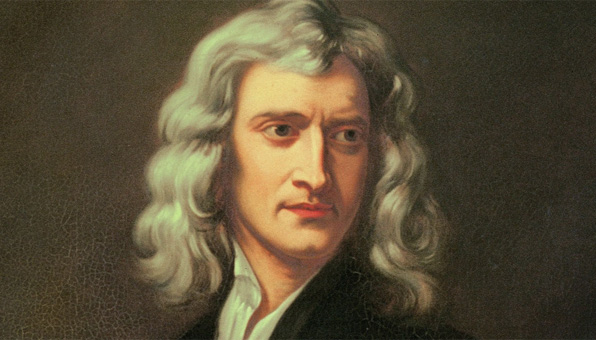Azadi ka Amrit Mahotsav Kolkata event honours four Clergymen
Pope Francis asks businesses to support working women: They’re ‘afraid to get pregnant’
Study: Christianity may lose majority, plurality status in U.S. by 2070
Indian politician declines Magsaysay Award under party pressure
Like John Paul II, Pope Francis heads to Kazakhstan during time of war

Augustine Pamplany CST
Alexander Pope has a well-known epitaph on Isaac Newton: “Nature, and Nature’s Laws, lay hid in Night. God said, Let Newton be! and All was Light.” It reflects the fame as well as the immense value of Newton with regard to science and religion. Isaac Newton is one of the greatest scientists of all times. As a scientist who pursued the mysteries of the universe, he was amazed by the divine mystery evident from the universe. Less known is the fact that Newton spent more time on theology than on science. It is estimated that he wrote about 1.3 million words on biblical topics. Newton based his idea of God on his science and Bible. He spent days and weeks continuously for studying Bible.
For Newton, it was quite natural for a scientist to make a smooth transition from the visible creation to its creator. Newton’s most important work is the Principia Mathematica. It is interesting to notice that the writing of this book was motivated by his religious convictions. He told his disciple Richard Bentley: “When I wrote my treatise… I had an eye upon such principles as might work with considering men for the belief of a Deity; and nothing more can rejoice me more than to find it useful for that purpose.” Thus Newton moved easily from his vision of the cosmos to the Cosmic Mechanic, the Divine. As a scientist who studied the mysteries of matter for life, he had this final conviction: “It seems probable to me that God in the beginning formed matter in solid, massy, hard, impenetrable, movable particles.” Thus the encounter with nature brought Newton to a face to face encounter with the Divine.
In the Newtonian mechanical view of the universe, the picture of a perfect world-machine implied an external Creator. Newton writes: “This most beautiful system of the sun, planets, and comets, could only proceed from the counsel and dominion of an intelligent and powerful Being… This Being governs all things, not as the soul of the world, but as Lord over all; and on account of his dominion he has to be called Lord God.” His self-understanding carries a mystical flavour: “I don’t know what I may seem to the world, but, as to myself, I seem to have been only like a boy playing on the sea shore, and diverting myself in now and then finding a smoother pebble or a prettier shell than ordinary, whilst the great ocean of truth lay all undiscovered before me.”
Leave a Comment